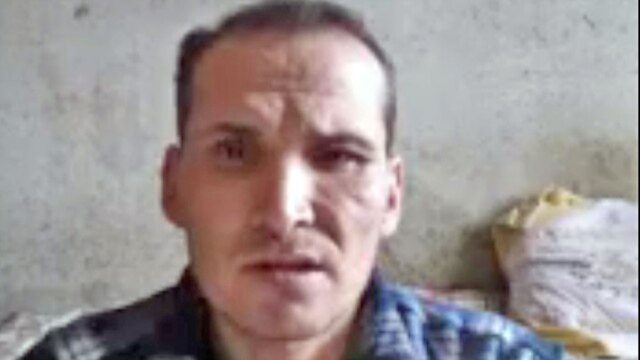RFE/RL Turkmen Contributor Released From Prison After Serving Term
Radio Free Europe/Radio Liberty (RFE/RL) contributor Saparmamed Nepeskuliev has been released from a Turkmen prison after serving a sentence on narcotics charges that numerous international observers have condemned as a brutal attempt to silence a journalist.

WASHINGTON — Radio Free Europe/Radio Liberty (RFE/RL) contributor Saparmamed Nepeskuliev has been released from a Turkmen prison after serving a sentence on narcotics charges that numerous international observers have condemned as a brutal attempt to silence a journalist.
“Saparmamed should never have been put behind bars in the first place,” said RFE/RL President Thomas Kent. “The rights of journalists are protected by international conventions to which Turkmenistan is a signatory. The crime here is Saparmamed’s imprisonment, not his reporting.”
Nepeskuliev’s imprisonment drew protests from seven U.S. lawmakers, who sent a letter to Turkmen President Gurbanguly Berdymukhammedov in 2016 calling the reporter’s detention “unlawful” and urging his immediate release.
The UN Working Group on Arbitrary Detention declared Nepeskuliev’s custody “arbitrary” in December 2015, finding that he had been “deprived of liberty for having peacefully exercised his right to freedom of expression.” The European Union, OSCE, and numerous media advocacy and human rights groups denounced his detention as politically motivated.
Nepeskuliev was released on May 19 after serving a three-year sentence that Turkmen authorities handed down in a closed session, after holding him incommunicado in an undisclosed location for seven weeks beginning in July 2015. Throughout his imprisonment, authorities failed to confirm either his whereabouts or his well-being.
His arrest followed an intimidation campaign directed against RFE/RL’s Turkmen Service in 2014-2015 that forced the resignations of six of nine of its local correspondents. “Nepeskuliev’s imprisonment,” RFE/RL said at the time, “was only the most ruthless part of a campaign by the authorities to systematically destroy the country’s only independent reporting network.”
The targeted attacks have continued well into 2018, with veteran correspondent Soltan Achilova suffering no fewer than eight physical assaults over the last 12 months.
Contributor Khudayberdy Allashov was subject to severe beatings and slapped with a three-month prison stint on bogus charges in December 2016.
Turkmenistan is tied with North Korea as the worst country in the world for media freedom, according to Freedom House’s 199-country Freedom of the Press 2017 survey; according to Reporters Without Borders’ 180-country 2018 World Press Freedom Index, Turkmenistan ranks 178, ahead of only Eritrea and North Korea.
Known locally as Azatlyk Radiosy, RFE/RL’s Turkmen Service has for 65 years provided Turkmen audiences with accurate and uncensored news and information as an alternative to the state-run media monopoly. In the past year (through April 2018), its website has been visited an average of 1.2 million times every month, while more than 421,000 videos were viewed on the Service’s Facebook page.